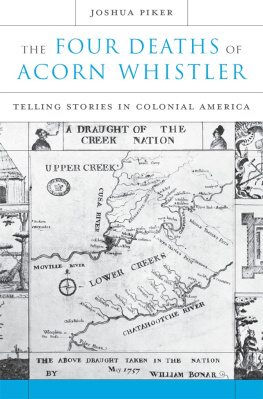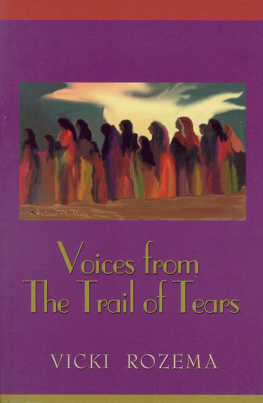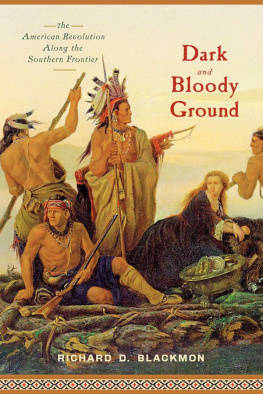Acknowledgments
This book is the product of several years of reading, research, on-the-ground investigations, group tours, presentations and discussions, and many solitary moments of pondering, writing, and rewriting. I am grateful for the assistance and enthusiasm I have met with along the way.
Numerous people offered research leads, suggestions, and opportunities: Tyler Boulware, Greg Brooking, Al Bullman, Ashley Chapman, Jefferson Chapman, Doug Cubbison, Scott Douglas, Graham Duncan, Debra Dylan, George Frizzell, Charlie Gray, Fritz Hamer, Eric Hughey, Buck Kahler, Angie King, Will Kinton, Clayton Lewis, Christopher Lyttelton, 12th Viscount Cobham, John Maass, Ronan MacGregor, Doug MacIntyre, Jim Moore, David Neilan, Lon Outen, Freeman Owle, Lisa Parrish, Jim Piecuch, Walt Powell, Tom Powers, David Preston, Joyce Purnell, Robert Rambo, John Robertson, Tammy Sarver, Cheney Schopieray, Lynn Shirley, Robert Shook, Bullet Standingdeer, Tim Stone, Wade Stoner, Steve Tuttle, Greg Urwin, Jeff Wells, Martin West, Scott Withrow, and Doug Wood. This book is better for the patient and thorough attention of Mark Simpson-Vos and others at the University of North Carolina Press.
I also appreciate the aid of the staffs at the Beinecke Library at Yale University, Camden Archives & Museum, Charleston Library Society, Colby College Libraries, David Library of the American Revolution, Duke University Libraries, the East Tennessee Historical Society, Gilcrease Museum, Hunter Library at Western Carolina University, the Museum of the Cherokee Indian, the Scottish Tartans Museum, South Carolina Department of Archives and History, the South Carolina Historical Society, South Caroliniana Library, and the William L. Clements Library. My several visits to Fort Loudoun State Historic Area in Tennessee proved awe-inspiring as well as helpful. I also thank the many others who helped me locate documents and images at libraries and archives in Great Britain and the United States.
The following people and organizations invited me to present my work in progress: Bruce Venter and his tour group at Americas History LLC, the Backcountry Revolutionary War Roundtable at Wofford College, the Brad-dock Road Preservation Association, Duke University Department of History, Fort Loudoun State Historic Area, the Kershaw County Historical Society, Ninety Six National Historic Site, the Society for Military History, the South Carolina State Museum, and Southern Campaigns of the American Revolution.
Generous support from the following sources enabled extensive travel and research: Colby College and its Wiswell Research Fund, David Library of the American Revolution, Duke University Graduate School, the Institute for Southern Studies at the University of South Carolina, and the North Caroliniana Societys Archie Davis Fellowship.
People at Duke University and in North Carolina helped in the making of this book, especially Ted Brooks, David Brown, Barry Gaspar, Doug James, Max Krochmal, Wayne Lee, David Long, Jacob Remes, John Thompson, Susan Thorne, and Peter Wood. I owe much to Elizabeth Fenn. In reviewing countless drafts and helping me sharpen my work, she made my journey through graduate school fun. Im grateful for the friendship and intellect of this outstanding bunch.
Many of my favorite memories associated with this project come from times spent in South Carolina with John Allison, Lisa Cheeks, Don Doyle, Walter Edgar, Dean Hunt, Elena Martnez-Vidal, Marjorie Spruill, and John Tompkins. Luke Reuwer, David Reuwer, George and Carole Summers, Charles and Judy Baxley, Matt Stevenson, and Eric Cheezum also provided friendship and cheer. Colleagues at Colby and friends in Maine sustained me in the later stages of this project, particularly Sherry Berard, Jim Fleming, Elizabeth Leonard, Dave and Sharon Page, Jim Webb, Robin Wiggin, and my students.
I thank my family most of all, especially Mike and Annie, Ted and Wanda, Ruth, Mike, Brian, Bill, and Diane. It is their humor and endless support that has meant the most.





